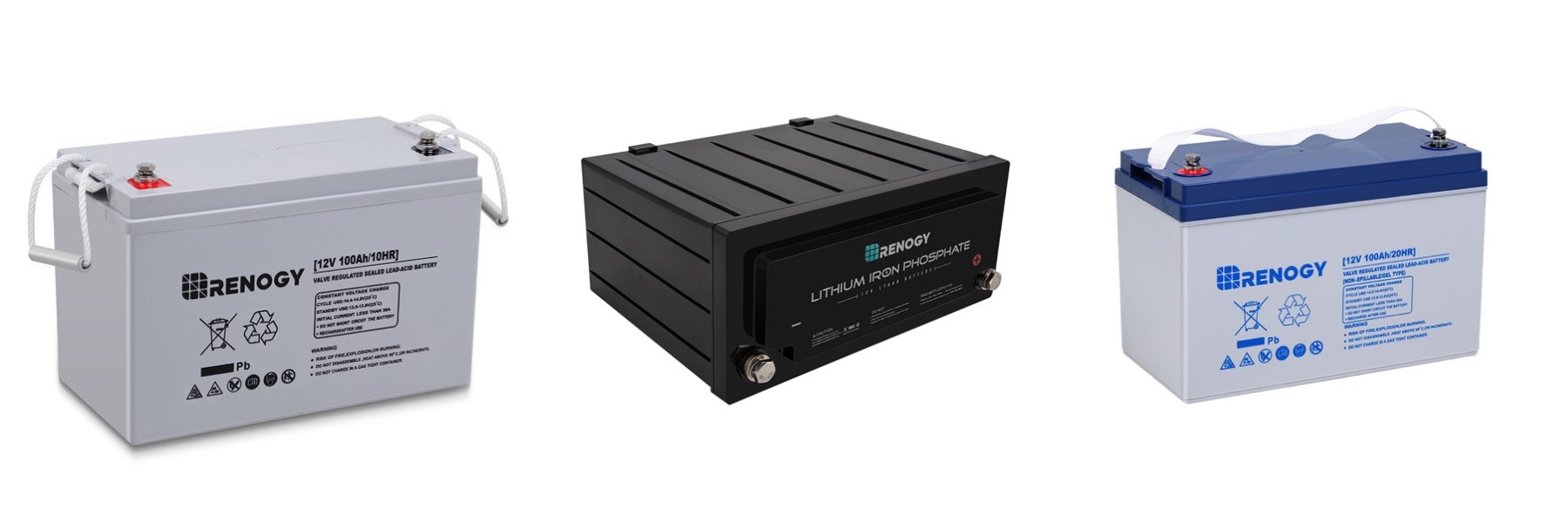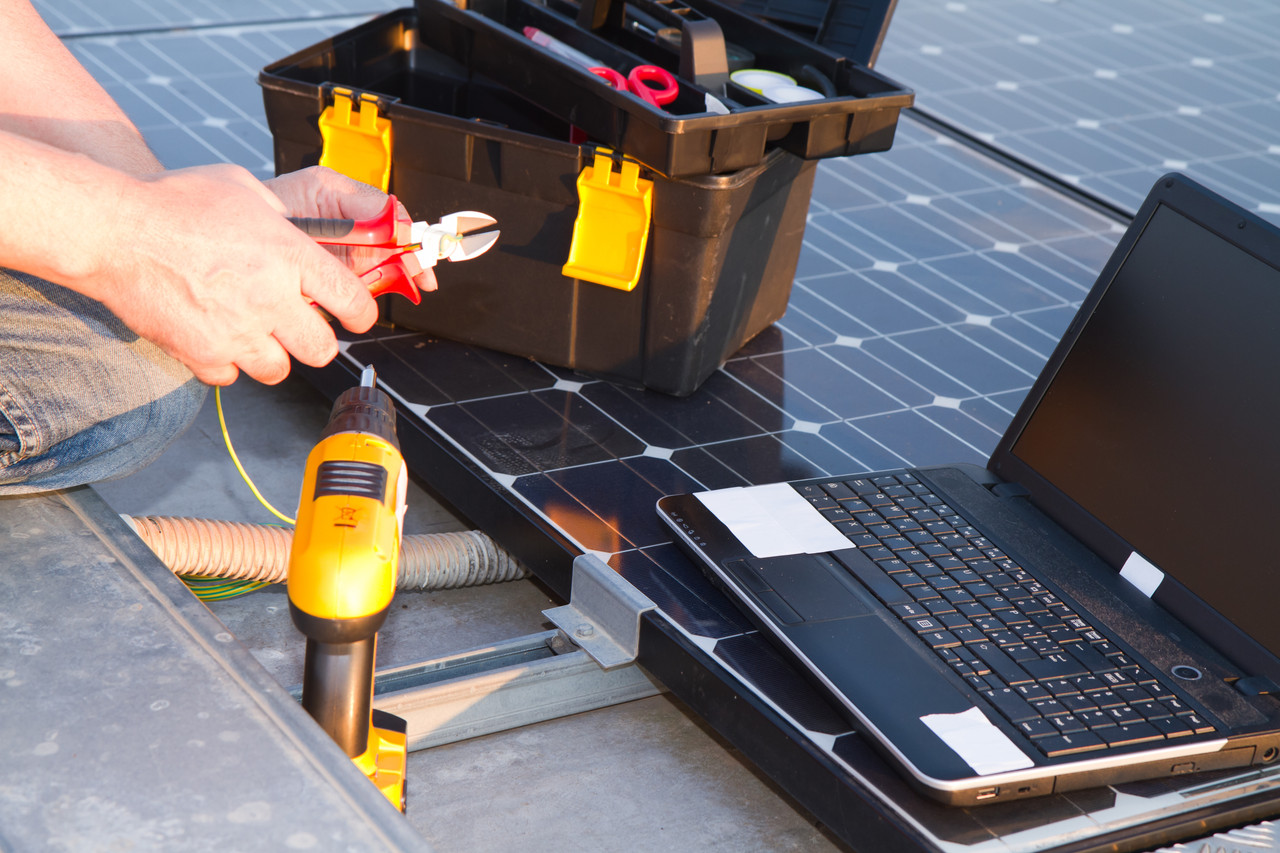Tips for a safe solar installation
Keeping yourself safe when working with electrical equipment and installing your panels
Although it’s never been easier to install solar on your own thanks to the growing availability of solar panel kits, there are still some important safety considerations to keep in mind during the installation process. After all, solar installations involve electrical equipment that can be dangerous if you don’t know what you’re doing. Additionally, if you’re mounting panels to a roof, you’ll want to take some extra precautions to make sure you keep yourself safe.
Is it difficult to install solar panels?
Installing solar panels yourself is much easier than it once was, especially if you purchase a solar panel kit from Renogy. Renogy solar panel kits will include solar panels, charge controllers, cables, and mounting hardware, meaning you still need to buy an inverter and batteries. Kits will also include detailed instructions for how to install the equipment, but if you still have questions, we recommend reaching out to a professional for help.
Do I need to hire a contractor?
If you’re installing panels on a cottage, cabin, or home, do your research to see what building codes say and what permitting is required. Every jurisdiction is different. Check with your state energy office, local officials, or a local renewable energy organization to see what requirements exist to make sure you adhere to specific rules, regulations and building codes.
Also, it’s important to note that if you’re staying on-grid, many jurisdictions require that your installation is completed by a licensed contractor for safety reasons.
What does the installation process look like?
If you’re installing a solar panel kit, we recommend following this process:
1. Evaluate your energy needs
You’ll first need to size your system based on your energy needs. Having an accurate understanding of your energy needs will give you a better idea of the costs and ensure you don’t under- or over-build a system.The Renogy solar panel calculator is a helpful and free tool that helps you quickly and easily determine your specific needs. The solar sizing calculator allows you to input information about your lifestyle to help you calculate your solar panel needs.
2. Shop for a DIY solar panel kit
Solar panel kits make it easy to ensure that you have all the essential parts you need for a safe and efficient system. Renogy has a range of different solar panel kits for those interested in installing solar on their own.

If you’re going off-grid or want to have energy storage in your system, you’ll need to do some research to decide what deep cycle battery is best for you. Lead acid batteries are the most inexpensive option and are available at most big-box and auto stores. Absorbed glass matt batteries store 10 to 15 percent more energy than lead acid batteries and charge up to four times faster. Lithium ion batteries are the most expensive options, but also last four times longer than lead-acid batteries and weigh much less. They also require very limited maintenance.
5. Permitting and Installation
If you’re installing panels on a cottage, cabin, or home, you’ll need to do your research to see what permitting is required. Every jurisdiction is different. Once all your necessary paperwork is in place (if applicable to you), then it’s time for the actual installation. Renogy’s DIY kits include specifications about how to install the technology, but it never hurts to consult with a professional to ensure the job is done right.
What safety measures should you consider when working with solar panels?
There are some key rules of thumb when it comes to ensuring a safe solar installation process.
- If mounting on a roof, secure yourself with a roof anchor tool: One of the biggest risks in installing solar is the potential to fall. Always use a roof anchor tool when working on your roof. This tool could save your life if you happen to lose your footing on the roof. Anchors can be installed temporarily while you install panels, and you can also consider permanently installing them to make it easy to safely access your panels in the future.
- Do not work alone: It’s always good to have a second pair of hands and eyes to assist you when installing solar. Additionally, if you’re working on a roof, it’s crucial to have someone there who can assist you in case of emergency.
- Don’t work in the rain: Roofs can quickly get slippery in rainy weather. Working on panels in the rain can present challenges to physically mounting the equipment. It’s always best to wait until the weather is dry.
- Check for damage to equipment: Although we at Renogy take great care in our packaging and shipping of materials, sometimes equipment can get damaged in transit. Damaged components and wiring can lead to lower performing equipment, and could even potentially cause fires or other shorts. Always visibly check all of your equipment upon receiving a shipment, and double check connection points once pieces have been installed.
- Insulate yourself to protect yourself from electric shock: Direct current can give you a series shock if you are not careful. Adhere to all codes, regulations, and manufacturer’s guidelines when installing a solar system. It’s also crucial to insulate yourself: use insulated tools and rubber gloves. Don’t wear any conductive items, such as jewelry and watches.
- When in doubt, consult an expert: Last, but not least, if you’re uncomfortable or unsure about anything involved in the installation process, we recommend talking with or hiring an expert to help you get the job done safely.
Can you damage a solar panel by short circuit?
Potential damage to a system due to short circuiting is why it’s essential to properly install fuses and circuit breakers in your system. Fuses and circuit breakers are there to protect your wiring from getting too hot and catching fire. They’re also there to protect devices from becoming damaged if there is a short circuit. If a short develops in your solar inverter, a fuse between it and the battery will prevent a possible explosion of the battery and it will cut the circuit fast enough to prevent the wires from causing a fire. In this case, the battery, wires, and AC/DC inverter will be safely disabled by the fuse.
You should also know how to use fuses with your solar panels. When you connect panels in series, there will be no increase in current flow so fusing is not required. When your panels are connected in parallel, the current is additive. So if you have 4 panels each capable of up to 15 amps, then a short in one panel can draw all 60 amps towards that short-circuited panel. This will cause the wires leading to that panel to far exceed 30 amps, potentially causing a fire. In this case of panels wired in parallel, a 30-amp fuse is required for each panel.
Conclusion
Installing solar panels has never been easier, but it does require some research and know-how to ensure a safe installation process. Always be sure to follow the manufacturer’s instructions on all your equipment and heed our above advice, from not working alone to insulating yourself to stay protected from shock. Do that and you’ll ensure a safe and seamless installation process.











